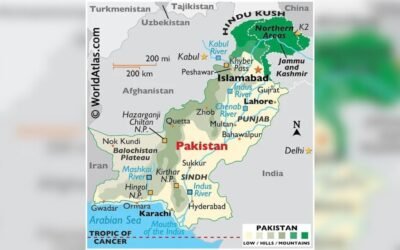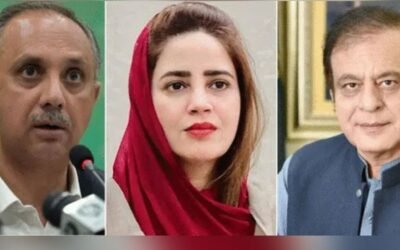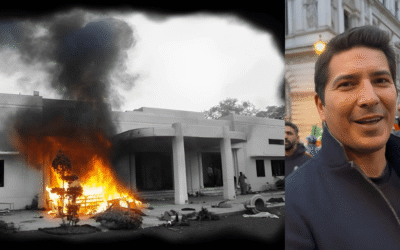Public trust is the foundation of any democracy. In Pakistan, years of political instability, corruption, and weak governance have eroded that trust. Restoring it demands real reform. Citizens must see and believe in the changes taking place.
A 2019 Gallup Pakistan survey found that only 25 to 30 percent of citizens trust major political parties. Voter turnout fell from 58 percent in 2013 to 55 percent in 2018, according to the Election Commission. Transparency International’s 2020 index gave Pakistan a score of 31 out of 100, placing it among countries with high perceived corruption.
These figures show a clear loss of faith in public institutions. Rebuilding that relationship will take steady and visible action.
Pakistan Business Confidence Continues to Climb – Gallup Survey
As per the latest Survey by Gallup for Q2 2025 (Apr-May-Jun25):
– Confidence in Country Direction Hits 4-Year High – Best since Q4 2021.
– Current Business Conditions Strongest in Years – 61% rate performance… pic.twitter.com/LIMhalx2FJ
— Khurram Schehzad (@kschehzad) August 11, 2025
Strengthening Governance and Accountability
Strong institutions begin with good governance. Public service appointments must be based on merit. Political loyalty should not decide who gets key posts.
Performance reviews should use clear benchmarks. Digital governance can reduce corruption. When services and records are online, citizens can track budgets and contracts.
Financial oversight is vital. The Auditor General’s reports should be made public without delay. Parliamentary committees must have the authority to act on findings.
Power must be shared with local governments. With real budgets and authority, they can respond quickly to community needs. Local decision-making helps rebuild trust.
You May Like To Read: Indus Waters Treaty: Quick Reference
Guaranteeing Fair and Free Elections
Elections test the health of democracy. The Election Commission of Pakistan must be independent, funded, and protected from interference.
The UNDP’s Strengthening Electoral and Legislative Processes project offers a good model. In 2025, its BRIDGE training workshop in Islamabad taught election administrators voter education, legal rules, and public outreach. Such training can raise standards.
Voter education remains weak. In 2018, Gallup found 40 percent of Pakistanis had no opinion on election fairness. Many lacked information. Targeted campaigns in rural areas can change that.
🚀A year of action. A future of possibilities.
The #UNDPinPakistan Annual Report 2024 is now live!
From digital empowerment to climate resilience, explore how we’re driving change — one initiative at a time.
📄 Read the full report here: https://t.co/UWyhqnatRO… pic.twitter.com/pgtg3xmptw
— UNDP Pakistan (@UNDP_Pakistan) April 29, 2025
Women, minorities, and people with disabilities must have both the right and the means to vote. Polling stations should be accessible, safe, and welcoming.
A credible judiciary is central to democracy. In Pakistan, public trust in the courts is uneven. Perceptions of political bias and delays harm its image.
Reform should focus on quick case resolution and transparency in appointments. Judgments should be published openly.
Security policies must respect constitutional rights. A state that ignores civil liberties risks losing the moral authority to govern.
Empowering Citizens
Democracy is more than elections. Citizens need ways to influence policy between votes. Town hall meetings, participatory budgeting, and online consultations can give them a voice.
Civic education is essential. Schools and media should teach both the rights and duties of democratic life. This helps create informed citizens who can hold leaders to account.
Inclusion is critical. Policies must address barriers faced by women, youth, and marginalized groups. Democracy works best when it serves all.
You May Like To Read: Beyond the Ballot: Can Citizens Shape Policy in the Digital Age?
A free media can strengthen democracy. But it can also harm it if it spreads false or sensational news. Editorial independence and fact-checking are essential.
Civil society groups connect people with the state. They monitor elections, push for reforms, and train citizens in public participation. Legal and financial support for such groups can build a democratic culture.
Engaging Pakistan’s Youth
More than 60 percent of Pakistan’s population is under 35. Their participation can revive democracy or weaken it if ignored.
Registered youth voters aged 18 to 35 rose by 10 percent between 2013 and 2018. This is an opportunity to expand engagement. Youth-led projects in unions, community groups, or councils bring fresh ideas.
Young leaders often embrace inclusivity and technology. Political parties should open their structures and mentor new talent.
Table: Public Trust in Key Institutions
| Institution | Trust Level (%) | Source & Year |
|---|---|---|
| Political Parties | 25–30 | Gallup Pakistan, 2019 |
| Military | 60 | Pew Research, 2018 |
| Judiciary | 36 | Gallup Pakistan, 2020 |
| Parliament | 28 | PILDAT, 2021 |
Rebuilding trust is not quick. It needs years of steady reform and clear communication.
Transparency must be more than a promise. Accountability should apply to all politicians, bureaucrats, judges, and generals. Citizen participation must be encouraged.
You May Like To Read: ATC Lahore Issues Mixed Verdicts in May 9 Riot Cases
As political analyst Dr. Sajjad Ali says, “The health of a democracy is measured not just by the strength of its institutions, but by the belief of its people that those institutions serve them.”
That belief is fragile in Pakistan today. With persistent effort, it can be rebuilt. Public skepticism can turn into the strongest defense of the democratic system.







